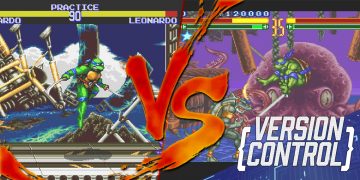Buy/Download Little Town Hero
Honestly… You wait a year for a Game Freak game to come along and then what happens? Two show up practically right on top of each other. Absolutely blimming typical.
All eyes might be on the release of Pokémon Sword and Shield next month, but this week, at least, it’s all about Little Town Hero. A much smaller scale RPG coming out of Game Freak’s “Gear Project” initiative. Intended to allow staff to flex their creative muscles a bit outside of the confines of the annual demands to feed the Pokébeast.
While Pokémon this is not, that DNA still runs through every pixel of Little Town Hero all the same. There’s even a recurring prominence of the colours red and green throughout the entire game – a very direct nod to the original Pocket Monsters titles in Japan (and you can read the full story of their extended and difficult development of right here on GameCrash!).
Your player character – by default called Axe, so we’ll call him that throughout this review – is one of several young people living in a small, quiet and peaceful village with the rest of their families. By royal decree, since long before Axe was born, no-one has been allowed to leave the village. In return, the castle’s soldiers keep the town safe, and everyone gets to live in harmony.
The threat of the world outside seems real enough – several characters are refugees from the wars of the countries beyond the castle walls, and there’s a genuine sense of fear from many of the adults that the village’s resources will make it an eventual target. But it doesn’t stop Axe and his friends from scheming to venture outside into the open world.
Although this motivation is Axe’s driving force for much of the story, it’s not something you’ll ever get to engage with as a player. Rather than being a travel-the-world RPG like the Pokémon series, all 15-20 hours of Little Town Hero takes place exclusively within this small village. But come the end of that time, this ultimately becomes a strength, not a weakness.
When you first meet them, Axe and his best friend Nelz are scheming up a way to get into the castle – the only route to the outside world. While their plan starts well, an interruption by Matock, Axe’s green-haired rival, leaves them stumbling at the feet of Angard, a senior soldier from the castle, and the plan in tatters.
Fortunately for Axe and his friends, Angard isn’t much interested in arresting them or telling their parents. He’s more concerned with nipping off down the pub to drown his sorrows. Having been given the task of finding and defeating what he believes to be non-existent monsters, he remains unimpressed by Axe and Matock’s enthusiasm when they follow him to the tavern to ask for help with their goal.
Eventually, though, they come to an understanding. Angard will train the boys how to fight – to protect themselves from the dangerous world beyond the castle gates – if they report back to his bosses that he found and defeated a monster so that he can go back to his old life.
Unlike the Pokémon series with its experience points, levels and expanding movesets, Little Town Hero draws its inspiration more from collectable card games. At the beginning of a fight, Axe will draw upon five ideas from his ‘Headspace’. In their raw form, these are called ‘Izzits’. By spending a limited pool of ‘power’ points, these Izzits can be converted into ‘Dazzits’ and actually used against the enemy in a literal battle of ideas.
As well as a cost, each Dazzit has an attack and a defence value. Match or exceed the opposing Dazzit’s defence value with your attack value and their Dazzit will break. In general, your goal is to break all of your opponent’s Dazzits so you can achieve a ‘Chance Turn’ where you directly attack your opponent’s body and ultimately bring their hearts down to zero and win. You’ll only be able to attack at this point if you’ve got an unused red ‘attack’ Dazzit, though. Otherwise, you’ll gain a ‘Break Point’ that can later be used to swap Izzits from your headspace into your ‘hand’ directly or revive all of your ideas once you’ve run out.
Yellow Dazzits meanwhile are defensive. As well as having higher defence points than most red Dazzits, they can also be used multiple times throughout your turn until they break, while the red ones cannot. Blue Dazzits are special attacks that you can use whenever during your turn without triggering your enemy’s attack. The effects of these range from causing damage to all of your enemy’s Dazzits to buffing your own. The blue Dazzits are all cheap, costing just 1-power, and will draw another idea from your headspace after using them, making them incredibly useful for chaining together and turning the tides of a fight.
While all of this sounds quite complicated, Little Town Hero does a good job of breaking you into it slowly. You’ll get several chances to figure out the basics before the game starts throwing the big monsters at you.
Once the monsters do become involved though, this is where Little Town Hero starts to revel in its small village setting. Fights don’t merely take place right in front of where you encountered the enemy. Instead, after each turn, you’ll chase the monster around the village Mario Party style to the roll of a four-sided die.
As you head from location to location, you’ll run into other villagers who can lend you their support in ways such as damaging all your enemy’s Dazzits or restoring all of yours. You’ll also find ‘Gimicks’ (a word brought to you by the same company that gave us Pokémon ‘Formes’) such as cannons, exploding barrels and chickens that you can use to lob damage directly at the enemy’s body. This does require having the correct red Dazzit, such as ‘Throw’ for the chickens, though. A task that’s much easier said than done.
This is where Little Town Hero‘s battles let themselves down considerably. The concepts at play are strong, but there are several layers of random number generators between you and a successful turn each time. The fact is that sometimes, you’ll just run out of luck and cannot win, no matter what.
Being what feels like cheated in this way can be annoying enough in and of itself. But this problem is severely compounded by how long each battle can take, even if you’re winning. Each turn can take a few minutes to burn through all of your enemy’s Dazzits, and each battle can take dozens of turns. At one point, it took me no less than two hours to clear one of the earlier monsters thanks to having to retry it a couple of times.
With no levels in the game, there’s also no grinding and no way to outright overpower your enemy. Not per se, anyway. There is a skill tree you can upgrade throughout the game, making your attacks somewhat more potent, but that only really goes so far. If your struggle is simply having the right Dazzits at the right time, or having enough power points to respond without taking fatal damage, these upgrades won’t help you.
As much as these frustrations diminish the overall combat, it isn’t all bad, at least. The flip side of all of this are moments where you get just the right hand and can lay on a devastating sequence of moves to suddenly turn things in your favour. It’s as satisfying here as it is in card games, but also, to be fair, pretty much just as uncommon.
What the lack of a level curve does for this game is otherwise a benefit, though. With the exception of constantly having to put Matock back in his place, the majority of the fights in the game tend to be somewhat unique. Not just because of the monsters themselves or their specific attacks, but there’s generally something different each time to shake things up and react to. One monster will attract smaller monsters it can consume for a power boost, for example, while another requires you to meet up with the other villagers across the battlefield to remove the ‘Guts’ shield protecting their hearts.
Most interesting of all the battles are the problem-solving ones. In these fights, you’re not so much attacking your foe as trying to accomplish a task that they’re not very interested in being co-operative about. Such as plucking a hair from an angry dog so your mum can make a back-pain remedy or shearing a sheep. Here you don’t have to rely on luck at all. You get a specific set of Izzits, power points and turns and have to work out the correct combination to break your opponent’s Dazzits and complete your task. They’re refreshingly satisfying but frustratingly few in number.
If this were how every fight in the game worked – like a puzzle to work out, rather than to demand your faith in the RNG Gods to deliver – it would be a lot easier to swallow the frustration of losing a fight.
The rest of Little Town Hero‘s gameplay is fundamentally just running from one place to the other when asked. With a specific focus on telling a story, your path is fundamentally linear, and there isn’t really much else to do but the fights as they come your way. There are a couple of small optional sidequests – such as finding all the chickens that have run away to hide in the rest of the village – but you don’t get much for them so you shouldn’t feel too bad about sacking them off when the time comes for the final couple of chapters.
Although the game is visually impressive – and full of chibi-style characters that look like they could have walked right out of a Pokémon game – there are some notable performance issues throughout. Frame skips, slow returns to being able to move your character again after cutscenes and problems where the audio cuts out entirely in between certain camera scenes betray both the game’s underpowered engine – Unity – and Game Freak’s general lack of experience with it.
The soundtrack, meanwhile, is perfectly serviceable JRPG fare but is remarkably unremarkable considering the headline attraction of Undertale’s Toby Fox as the game’s composer. Certain tracks have a bit more meat on their bones, but if you held a gun to my head and asked me – without prior knowledge – who was behind the music of the game, the guy behind Megalovania really wouldn’t have even been in my top 10 guesses.
With all things considered, Little Town Hero’s appeal comes primarily down to its story. Fortunately, it absolutely delivers on this front. The smart decision to not make Axe a characterless silent protagonist allows Game Freak to hook the entire story around him in an incredibly engaging manner.
While all the game’s significant events involve a monster that needs biffing, the story is more a coming-of-age story for Axe and how he handles and grows his various relationships. With his rival, Matock, his friend Nelz, his sort-of-girlfriend Pasmina, his mother… and basically everyone else in the village too. It has a lot of surprising depth and heart – especially for the guys behind the thread-bare Pokémon series.
Unfortunately, while Little Town Hero easily surpasses even the best story-writing that the Pokémon series has to offer (that’s Pokémon Black & White, and Black & White 2, for the record), Game Freak’s more prominent series has its little brother entirely dominated elsewhere. It’s perhaps unfair to make such comparisons, but it’s also just impossible not to do so. If you were only to play one Game Freak title this year, it’s a safe bet that Little Town Hero wouldn’t be the right choice to make.
But, as the most ambitious non-Pokémon project the team has taken on, Little Town Hero is a decent attempt. It would have been fascinating to see what the studio could have delivered here had they put their full Pokémon-level resources into the game. Perhaps the biggest pity of all is that we may never get to see what a non-Pokémon game AAA game from Game Freak looks like – because if it started off like Little Town Hero, it could be very promising indeed.
A review copy for this game was provided by the publisher.
For more on Game Freak
In celebration of 30 years of Game Freak, we’ve got a deep dive into how Satoshi Tajiri’s childhood obsessions led to the formation of Game Freak and the creation of Pokémon. Next, there’s the full story of the troubled development of the very first Pokémon games – including how Junichi Masuda, well known as the public face of Pokémon today, came to the series’ rescue at Game Freak’s darkest hour!
The Review
Little Town Hero
A flawed but heartful mini-RPG from the Pokémon people. Worth a look but the luck-based battles can be extremely frustrating.
PROS
- Funny and engaging story
- Is short enough to easily smash before Pokémon comes along
- The battle system's got a great core idea but its best uses are its most infrequent
CONS
- Long, frustrating, luck-based battles
- Music doesn't really live up to putting Toby Fox's name on the box
- Some really noticeable performance problems
Review Breakdown
-
Graphics
-
Gameplay
-
Audio
-
Value for money







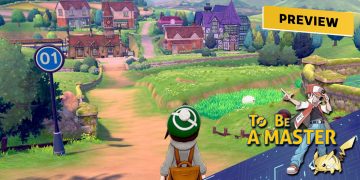
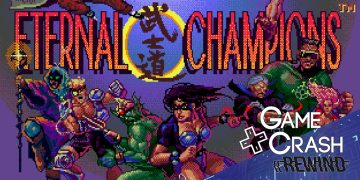
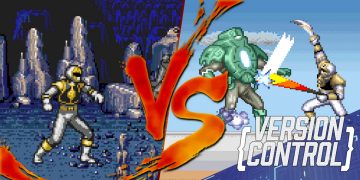





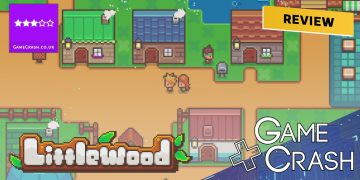






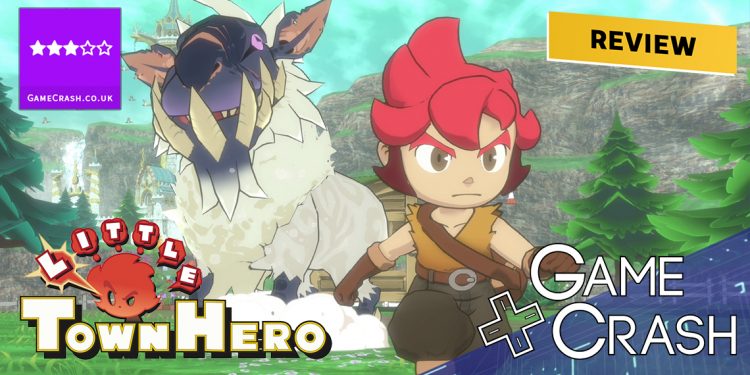
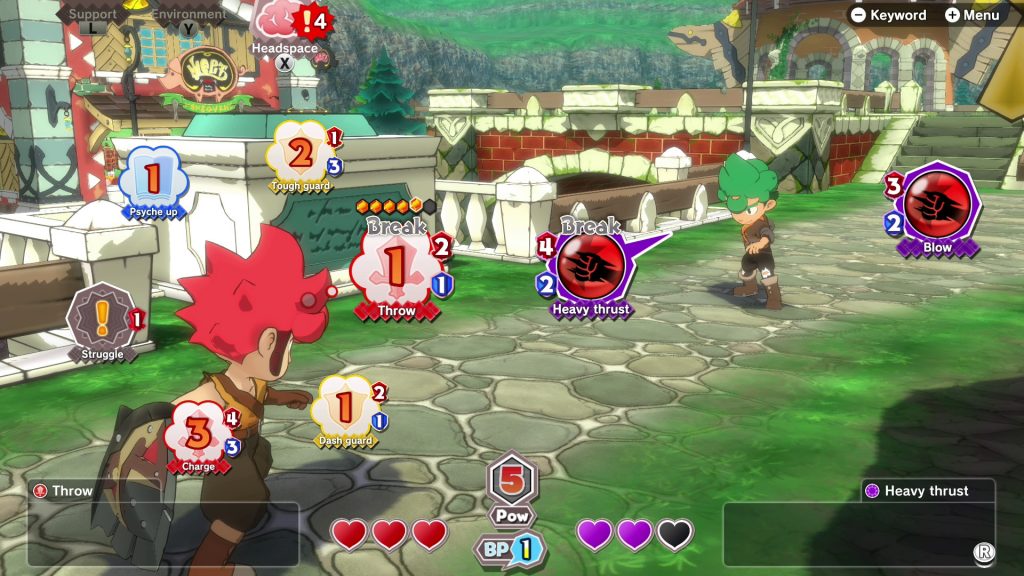
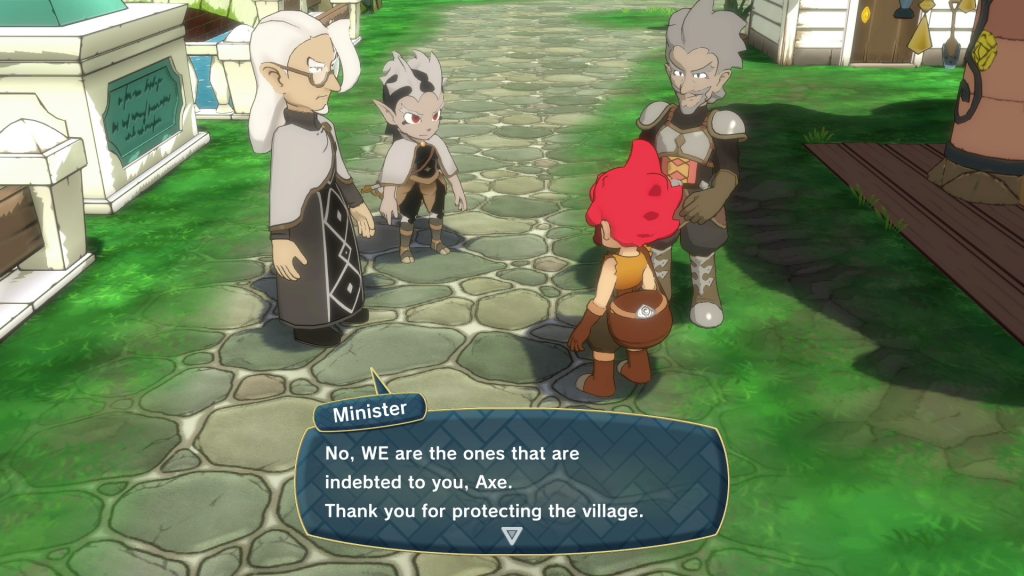
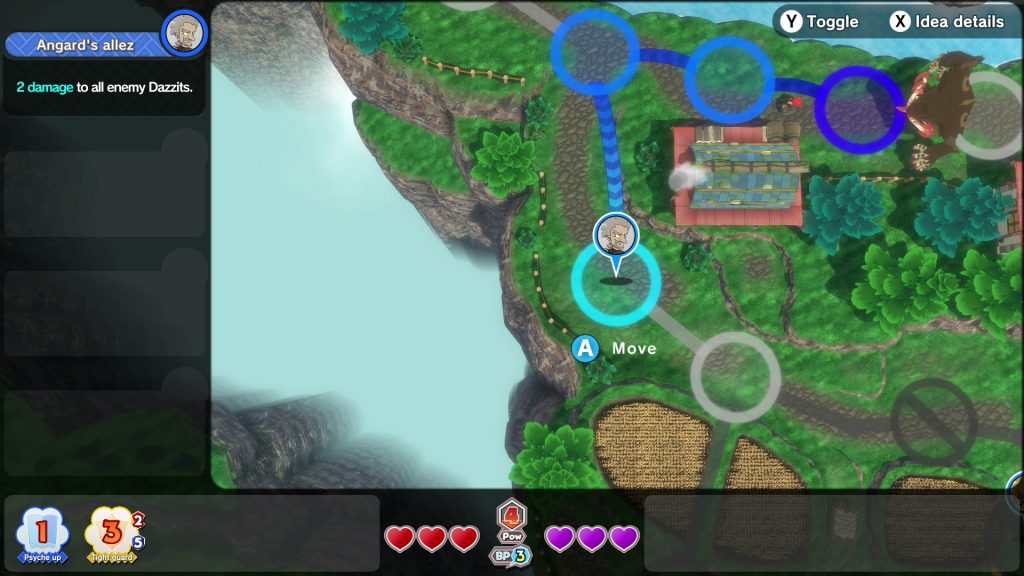
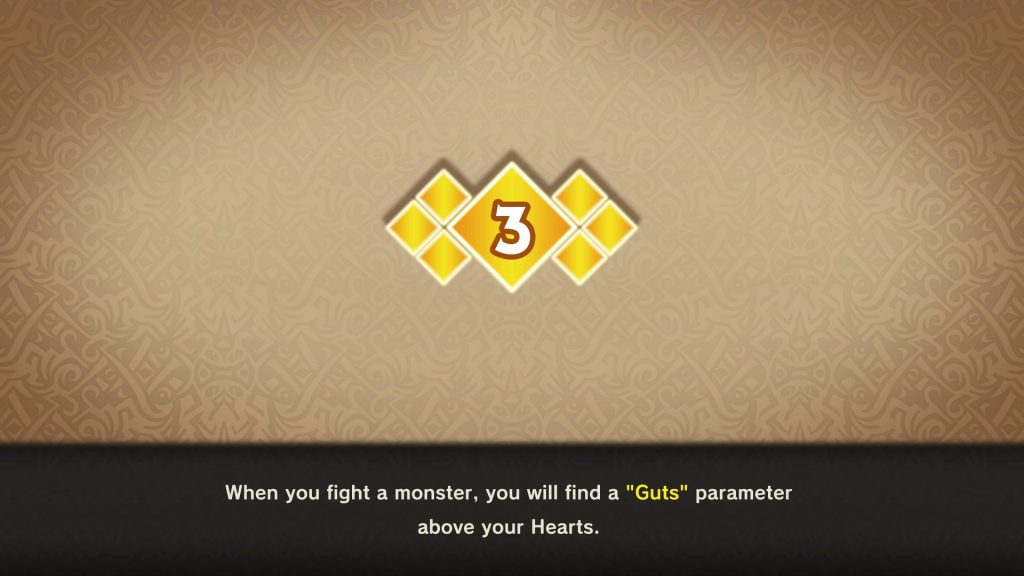
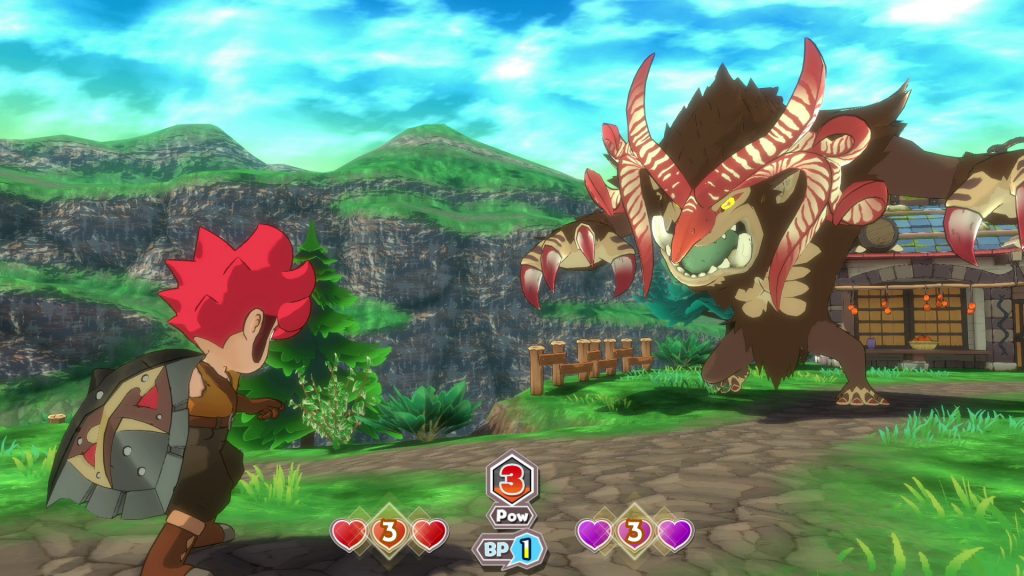
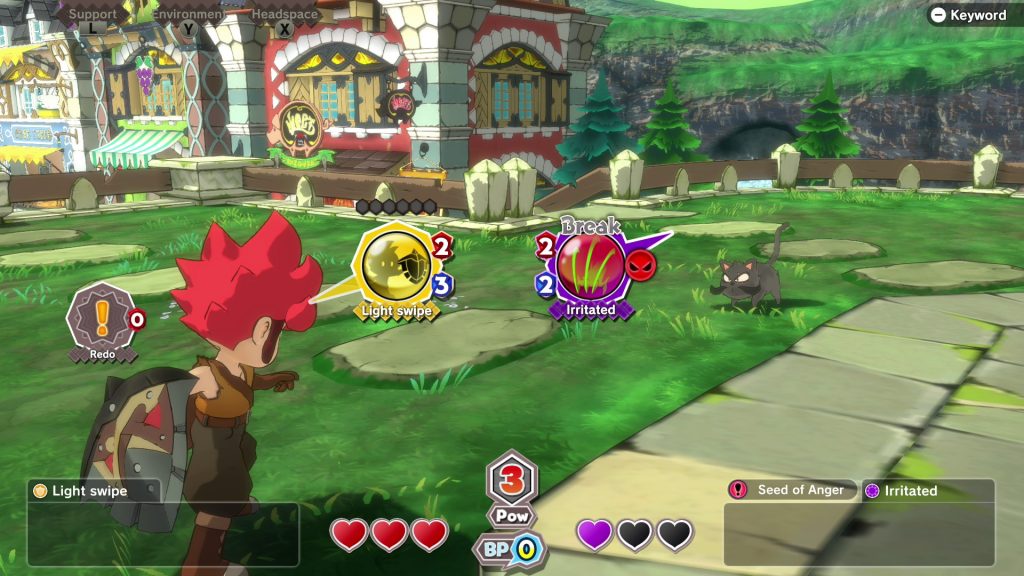
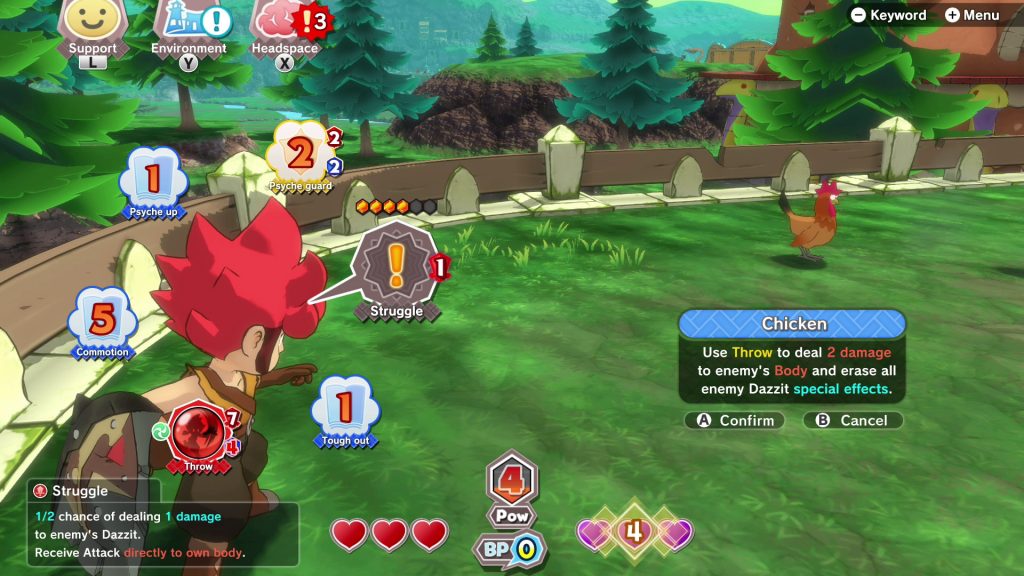
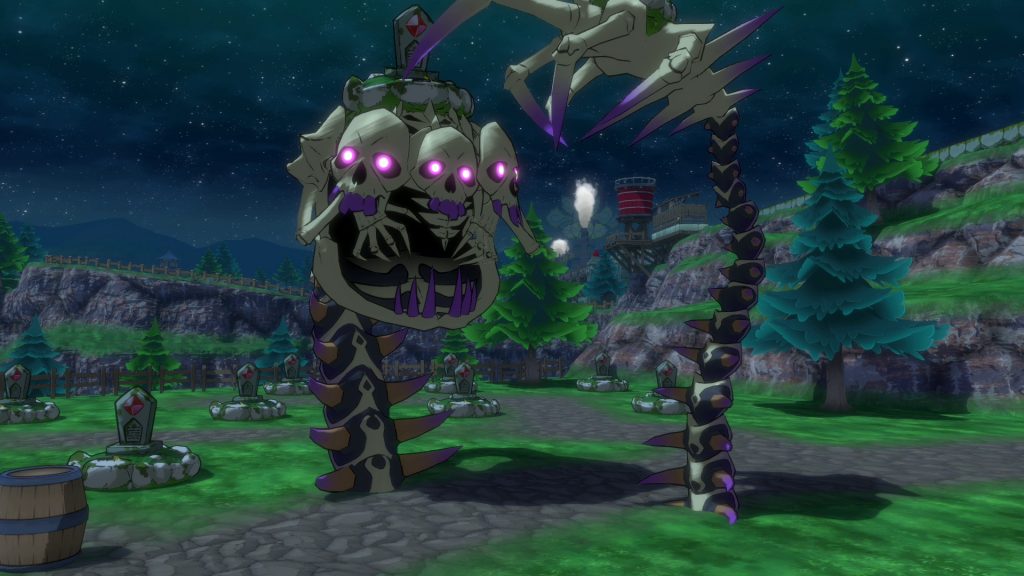
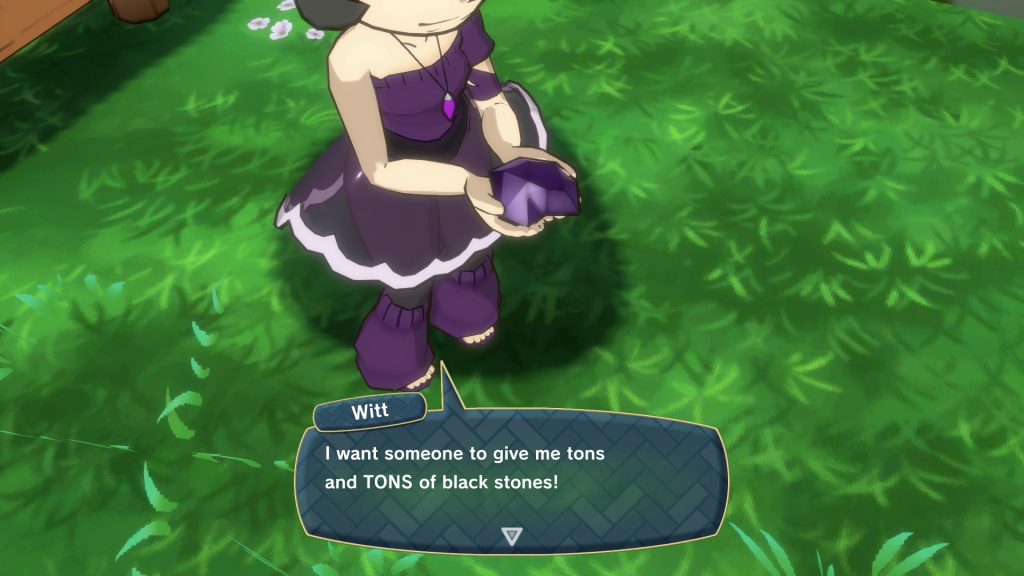
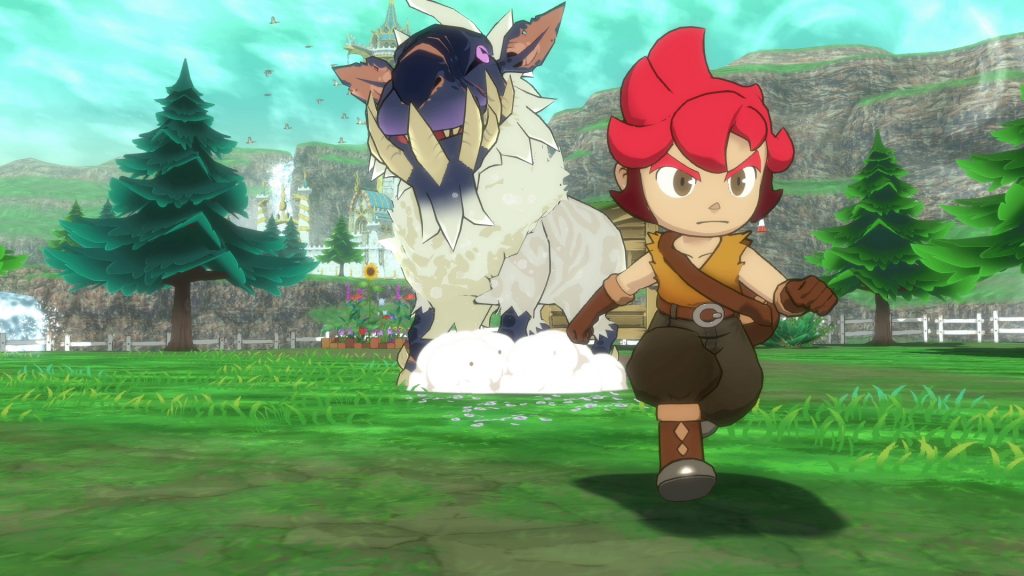
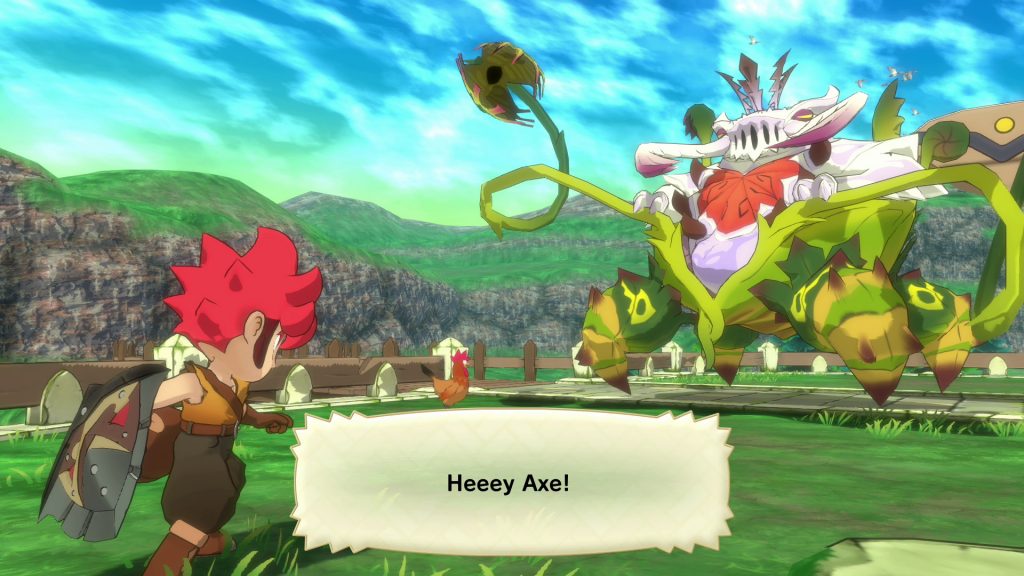
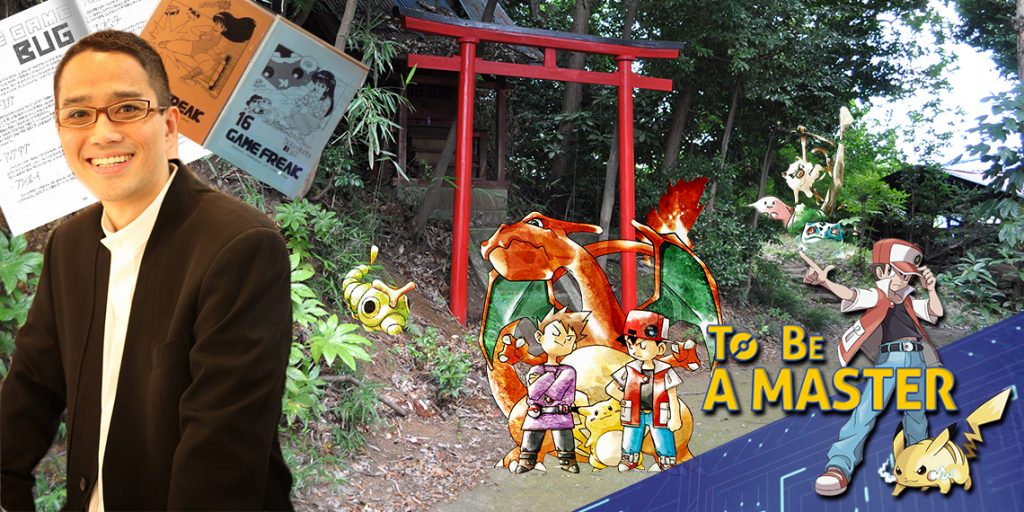
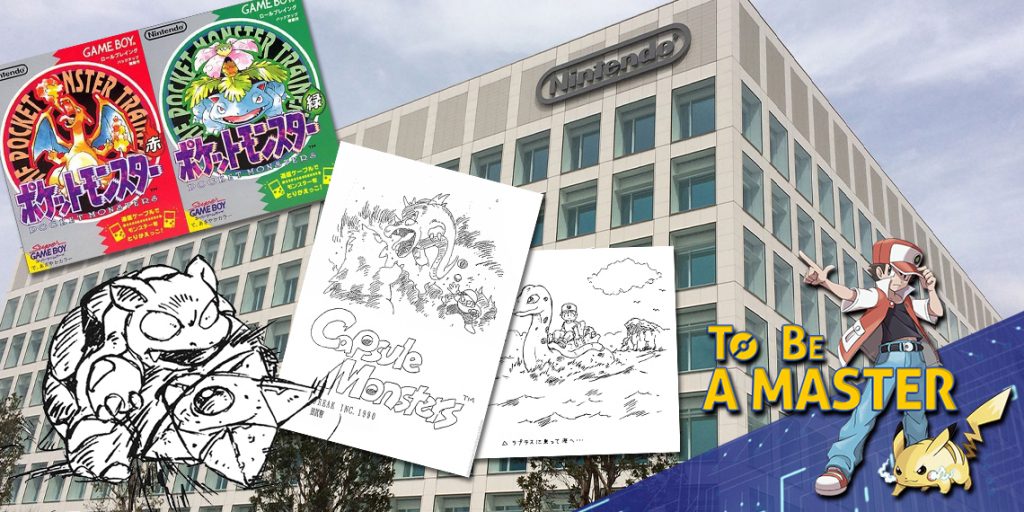
 Nintendo eShop
Nintendo eShop




